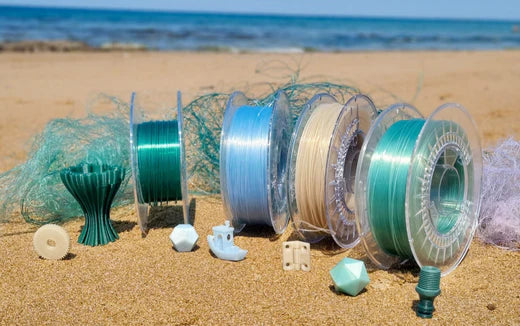
The circular economy, from sea to freshwater
As we know, the sea and freshwater are closely linked. Marine pollution and the rubbish that litter our beaches also find their way into our freshwater streams and rivers in the form of microplastics. Used fishing nets account for almost 10% of the plastic pollution found at the bottom of the oceans, i.e. 640,000 tonnes a year worldwide and 800 tonnes in France.
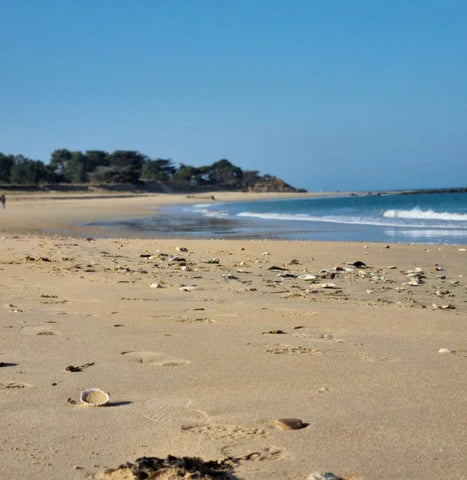
The future of recycled fishing nets
ValorYeu, a young company based on the Île d'Yeu that recovers used fishing nets, has set itself the mission of combating this scourge. Laure Jandet, the company's founder, recovers used fishing nets found on the Île d'Yeu, as well as in La Rochelle, La Turballe - Le Croisic, Saint-Gilles-Croix-de-Vie, Hœdic and Houat. From this material, considered to be waste, she has created a useful resource for the production of recycled everyday objects such as egg boxes, oyster plates and spools for 3D printing. Now it's the ORISA® water purifier, and in particular the knob on its bucket hook, that lends itself to this eco-design approach.
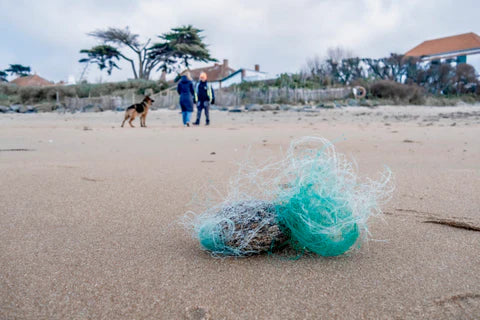
Limit the systematic use of plastic and its ingestion, which is harmful to the human body
This collaboration between ValorYeu and Fonto de vivo reflects the desire of these two Loire-based companies to promote a more responsible economy that respects resources. Water plays a central role for these two local players. That's why they are committed to raising awareness of the need to preserve this blue gold: water.
An issue that is all the more important in an island context such as that of the Iles du Ponant, where the large influx of tourists during the summer means that water management is complex. Subject to restrictions and accustomed to collecting rainwater or drawing water from a well, the islanders are looking for alternative solutions to compensate for this strained water network. The ORISA® water purifier, equipped with an ultrafiltration membrane, filters out microbiological contamination, bacteria, viruses, micro-organisms and parasites such as protozoa, as well as microplastics and other suspended matter present in the water to be filtered. It's the perfect solution for islanders. Harvesting rainwater stored in a skimmer, cistern or private pond, for example, provides access to an emergency water supply that can be filtered and then consumed without the risk of microbiological contamination or ingestion of harmful substances such as microplastics.
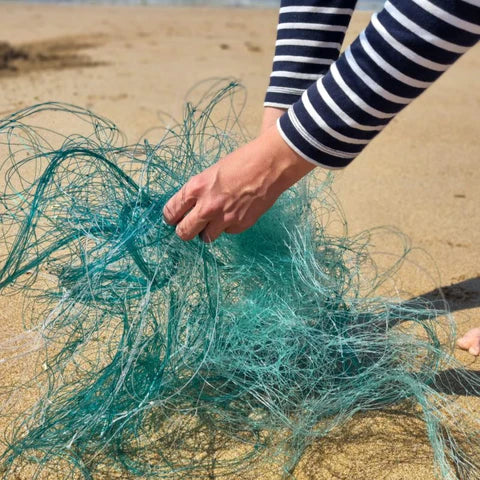
From marine materials and recycled fishing nets to water filtration equipment
Once collected from ports and fishermen, the fishing nets are transported by sailboat to the Île d'Yeu where they are recycled and processed. They remain in their raw state with no additives, colouring or additives, so they can be recycled ad infinitum. With the aim of encouraging short circuits and the local economy, Fonto de vivo wanted to support ValorYeu's approach by having the knob for the bucket hook produced from recycled fishing nets in the Vendée. This approach contributes to the recycling of plastic and limits microplastics in the oceans, particularly on the Atlantic coast, while giving a useful second life to the material. What's more, this collaboration is part of a social approach, since ValorYeu relies on the know-how of people in situations of reintegration or immersion to produce these recycled objects.
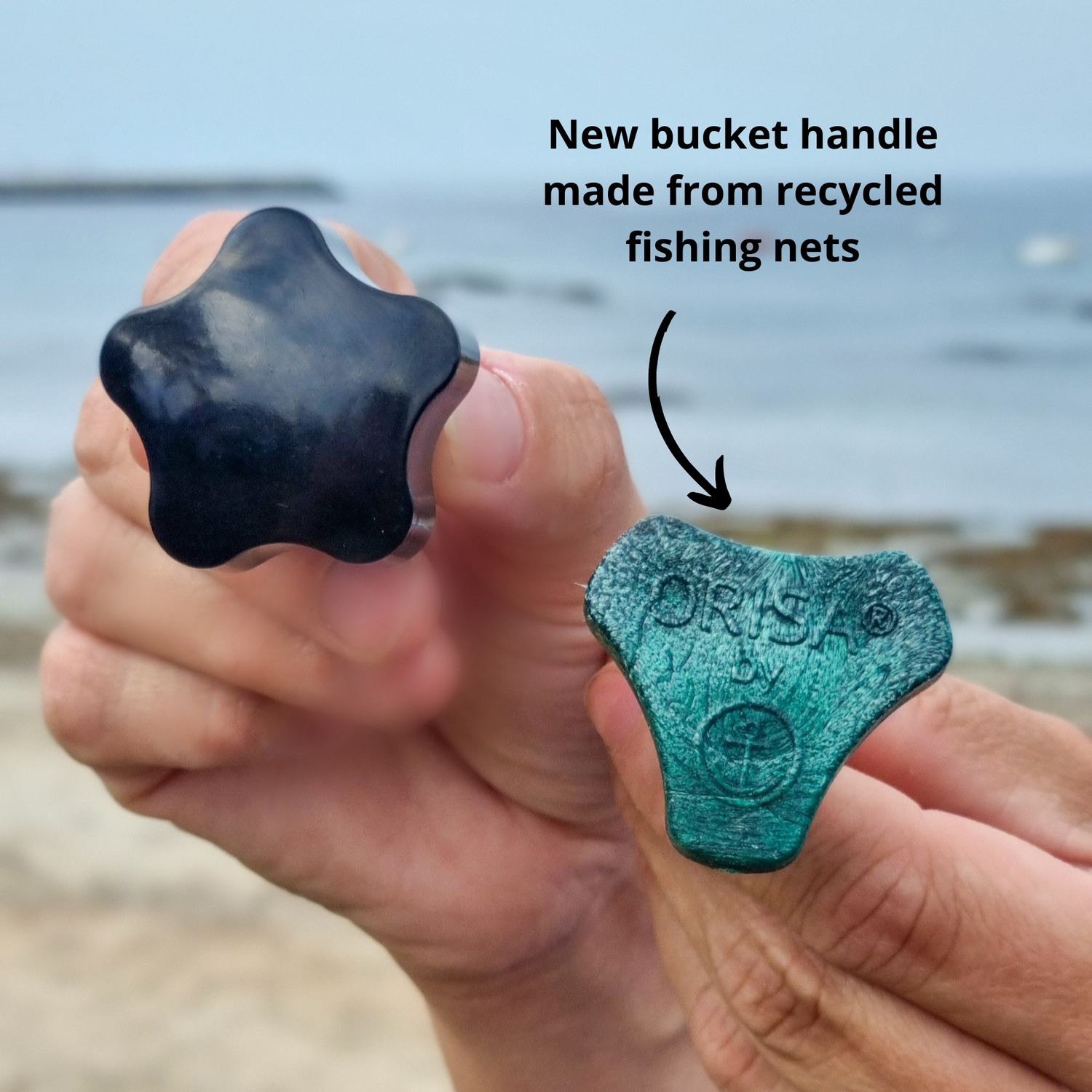
A limited edition of ORISA® with a knob made of recycled fishing nets
From July 2023, Fonto de vivo and ValorYeu will be offering a version of its ORISA® water purifier made in France with a knob made from recycled fishing nets. A limited edition of 500 units will be produced to meet the needs of the islanders of Île d'Yeu and, more broadly, of the Ponant Islands and, more generally, of people seeking autonomy and looking for a solution within their reach.
This limited edition will be on sale exclusively on our online shop from 25 March 2024 and, from summer 2023, at ValorYeu's premises on Île d'Yeu at 16 quai de la chapelle.


